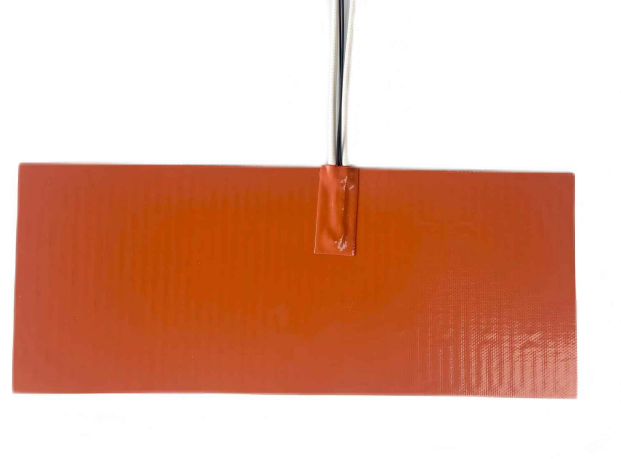
Why High-Temperature 3D Printers Need Rogers Silicone Heaters
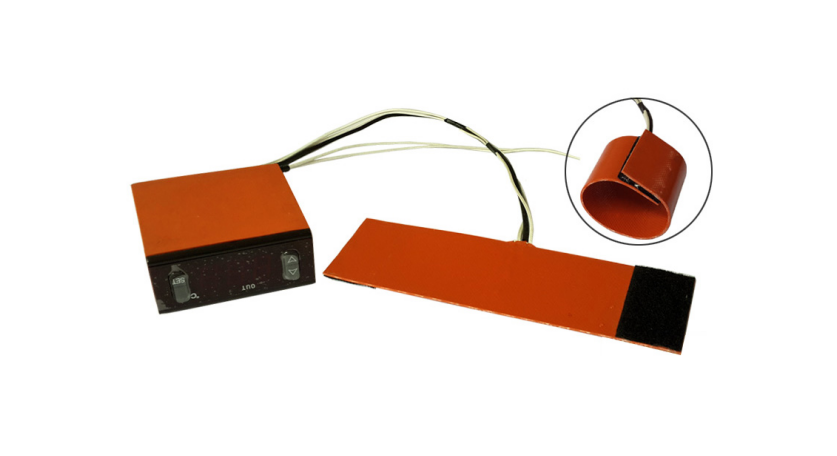
Choosing the Right Thermostat for Smart Temperature Control Needs
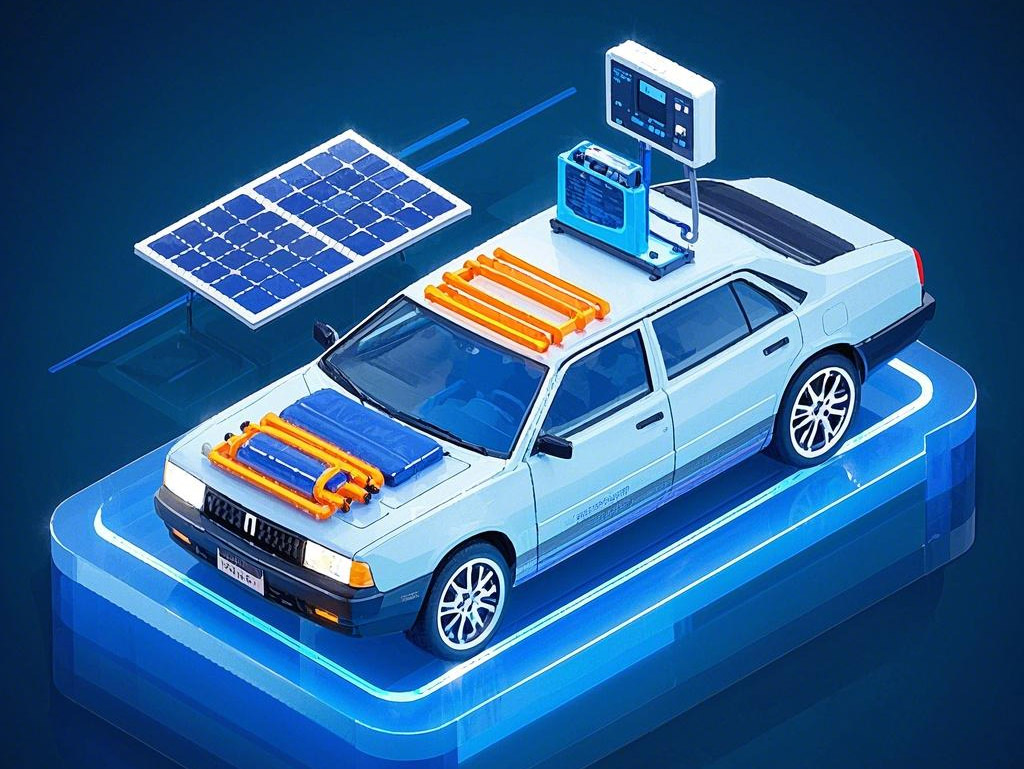
Silicone Rubber Heaters in Automotive: Durability Meets Innovation
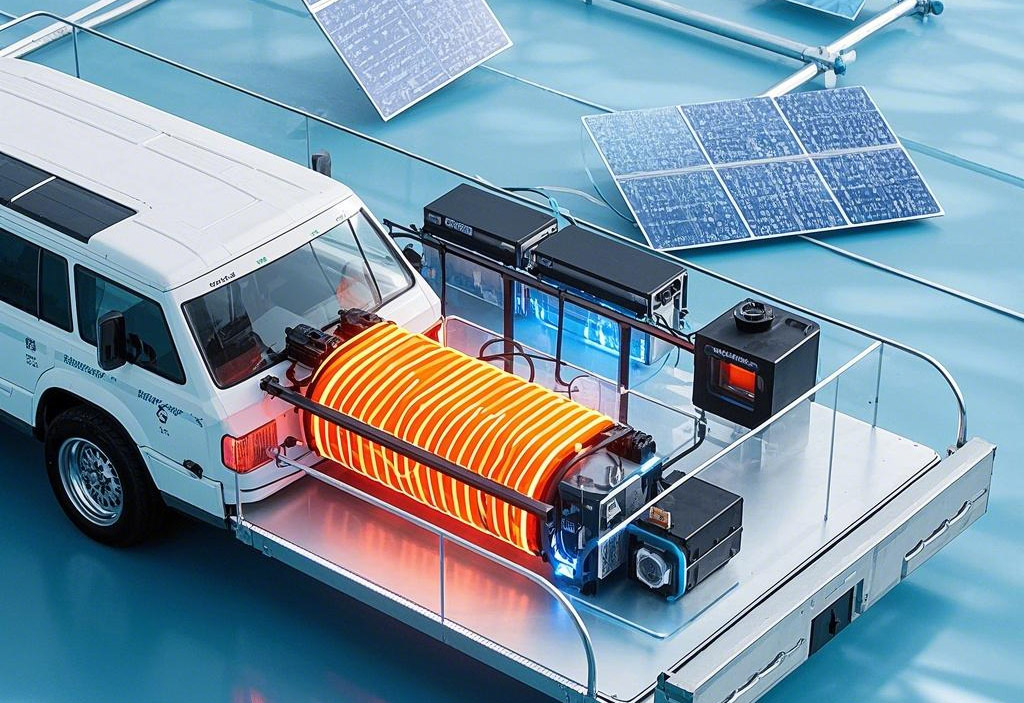
Polyimide Heaters: Key Applications in the New Energy Industry
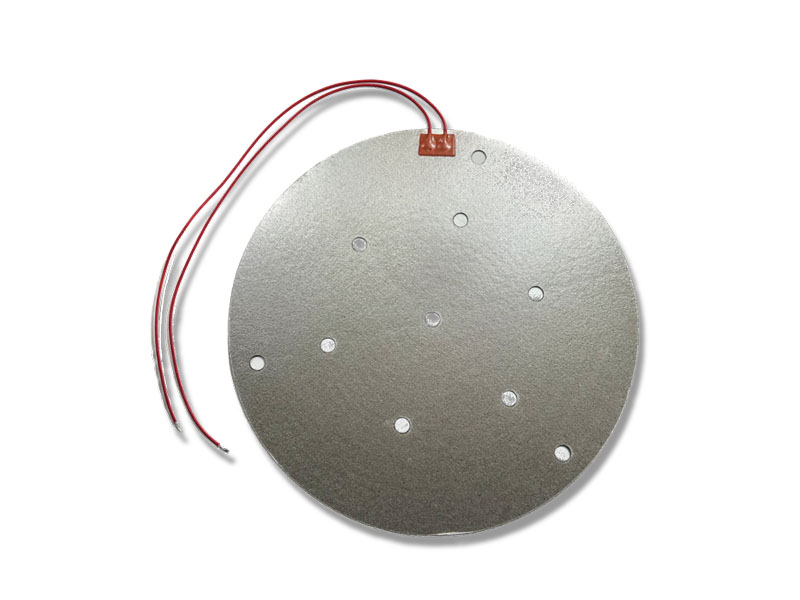
Why Mica Heater Need Multiple Through-Holes
When it comes to heating aluminum plates, Polyimide heaters are often the go-to choice. These heaters offer a range of benefits that make them particularly well-suited for such applications. Below, we explore three primary reasons why Polyimide heaters are frequently selected for heating aluminum plates, along with a detailed explanation of each.
High-Temperature Stability:
Polyimide material can consistently perform at temperatures up to 200°C or even higher without degrading or deforming. This high-temperature stability is crucial for aluminum plate applications that require sustained heating, ensuring long-term reliability and durability of the heater.
Low Thermal Expansion Coefficient:
Polyimide has a low thermal expansion coefficient, meaning it doesn't undergo significant dimensional changes as temperatures fluctuate. This property is particularly beneficial for aluminum plates, as it prevents structural stress issues that can arise from thermal expansion during the heating process.
Thermal Shock Resistance:
Polyimide is capable of withstanding rapid temperature changes without being damaged, making it ideal for aluminum plate applications where frequent heating and cooling cycles are involved. This resistance to thermal shock ensures that the heater remains intact and functional, even under demanding conditions.
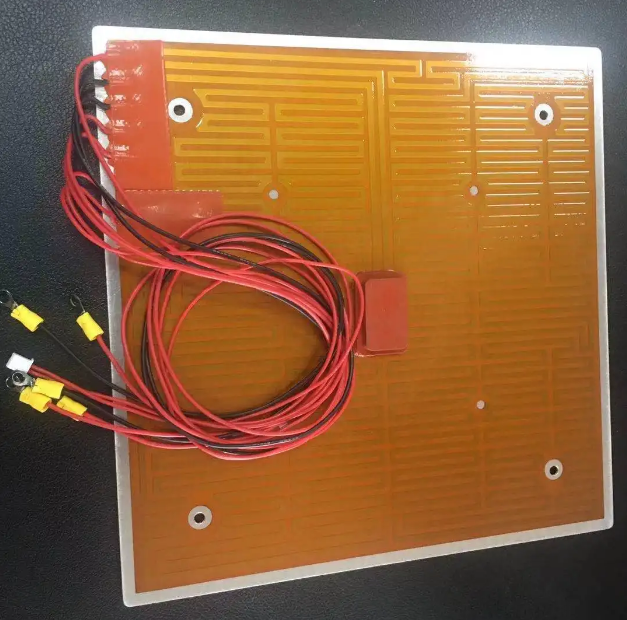
High Electrical Insulation:
Polyimide is known for its superior electrical insulation properties, effectively preventing current leakage and ensuring electrical safety during the heating process. This high level of insulation is essential for preventing short circuits and protecting against electric shock, which are critical considerations when working with metal surfaces like aluminum.
Overheat Protection:
Many Polyimide heaters come equipped with overheat protection features. These devices automatically cut off the power when the temperature exceeds a set threshold, preventing overheating that could lead to fires or damage to the equipment. This safety feature further enhances the reliability and safety of using Polyimide heaters.
Chemical Stability:
Polyimide's chemical stability means it is resistant to corrosion and can maintain its insulating properties even in harsh environments. This durability adds an extra layer of safety, ensuring that the heater continues to function effectively without degradation over time.
Ultra-Thin Design:
Polyimide heaters typically have a thickness of only 0.1-0.2 millimeters, making them incredibly thin and lightweight. This minimal thickness ensures that the heater does not significantly increase the overall thickness of the aluminum plate, making it suitable for applications where space is a concern.
High Flexibility:
The flexible nature of Polyimide material allows the heater to easily conform to the curves or complex shapes of the aluminum plate, ensuring uniform heating across the entire surface without any dead zones.
Easy Installation:
Polyimide heaters are often designed with a self-adhesive backing, allowing for quick and secure attachment to the aluminum plate. This eliminates the need for complex mounting hardware, simplifying the installation process and saving both time and labor costs.
By considering the superior heat resistance, excellent electrical insulation, and ease of installation offered by Polyimide heaters, it becomes clear why they are an ideal choice for aluminum plate heating. These heaters provide a reliable, safe, and efficient solution that meets the demands of various industrial applications. Whether you're dealing with high-temperature requirements, safety concerns, or installation challenges, Polyimide heaters offer a versatile and effective solution for your aluminum heating needs.

We offer a wide variety of high-efficiency heaters and heating element.Such as polyimide/kapton heaters,silicone rubber heaters,PET transparent heaters, thick film heaters,PTC heaters, mica heaters,epoxy resin heaters and graphene heating film.